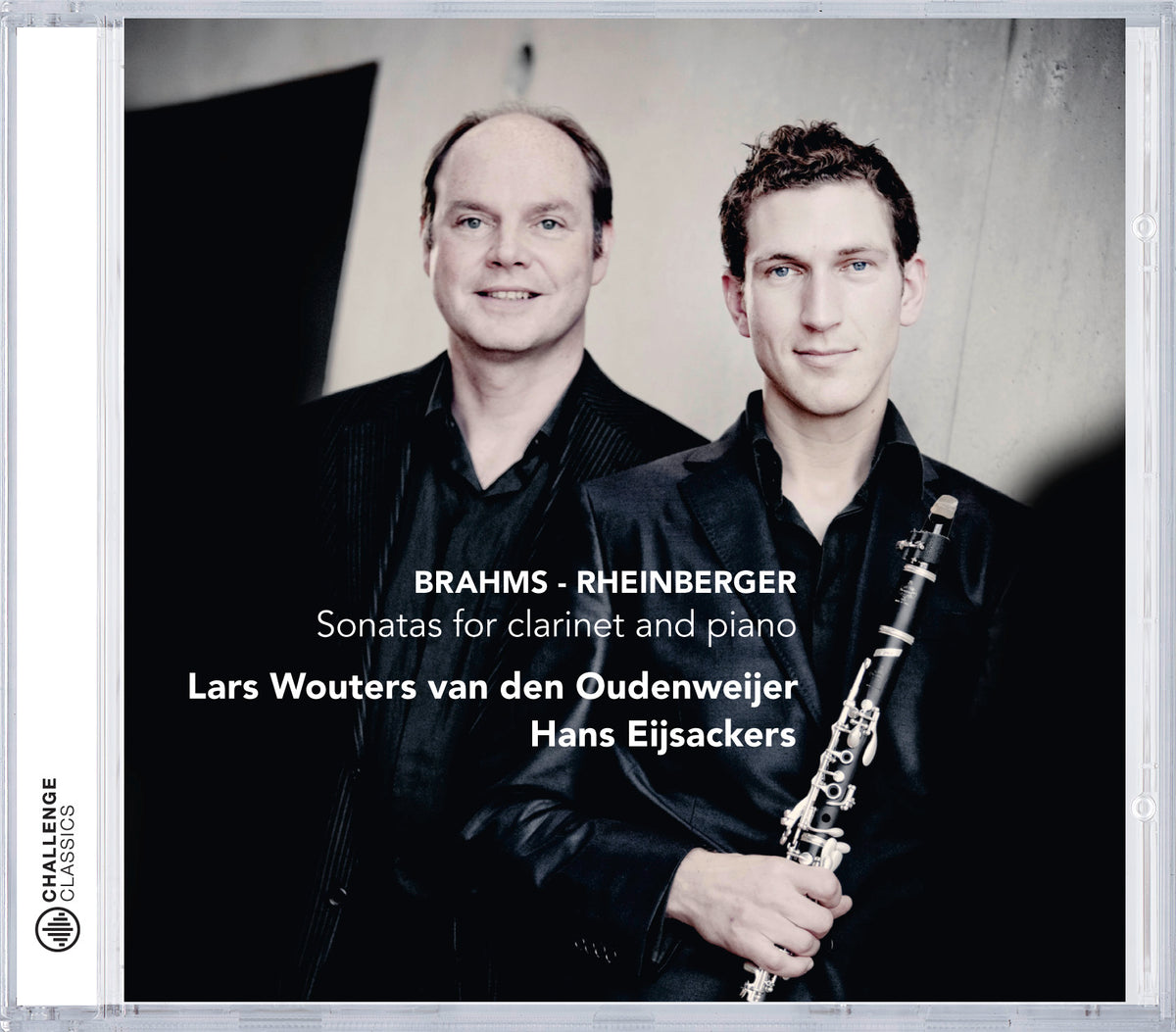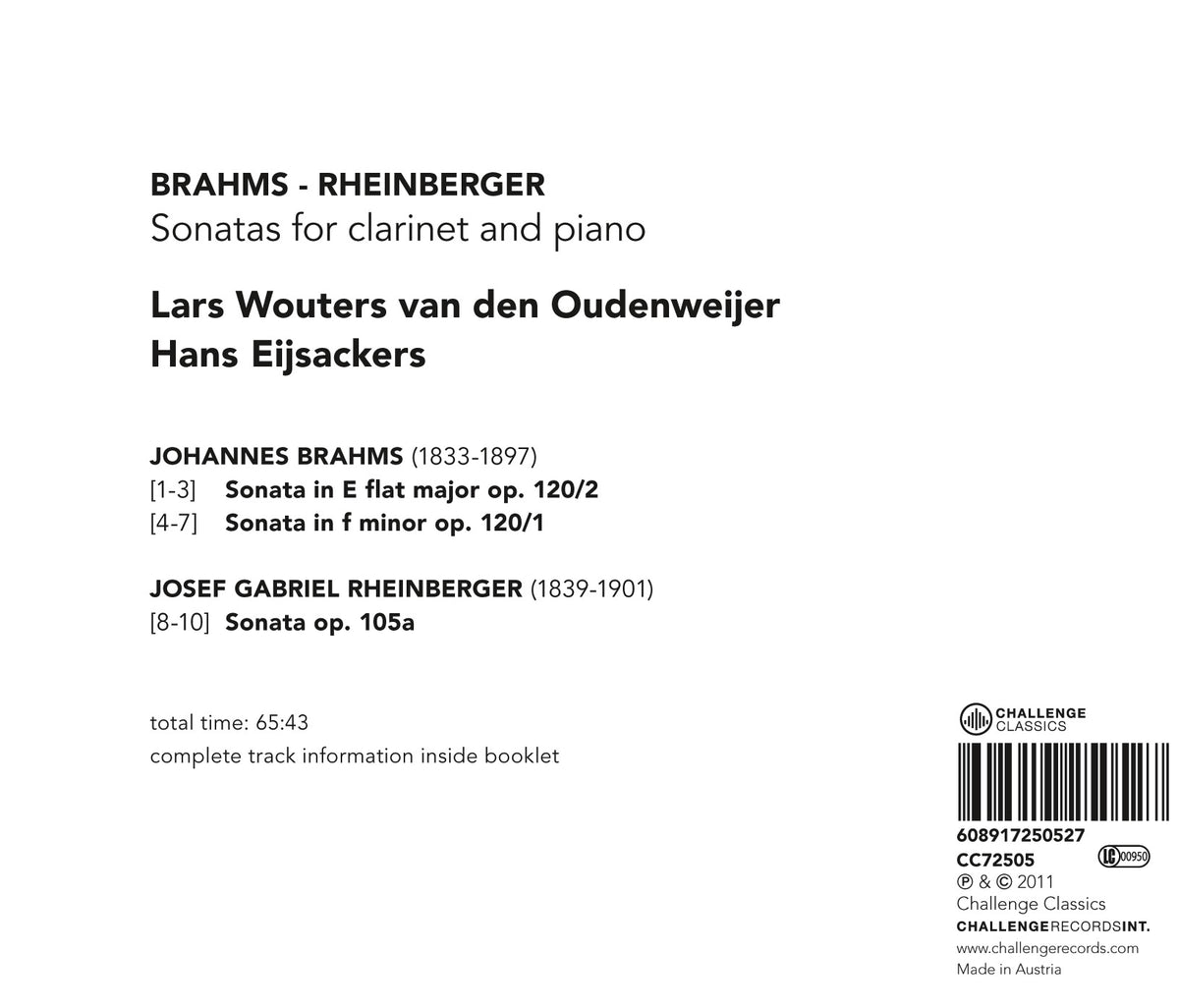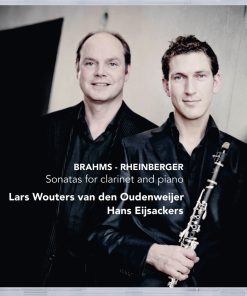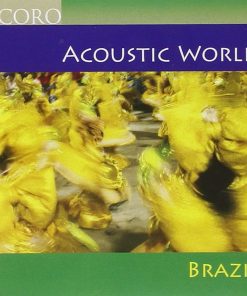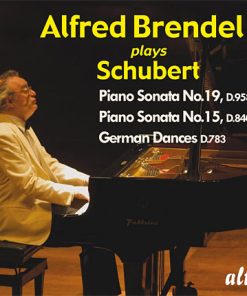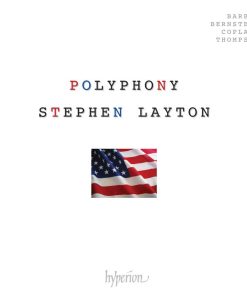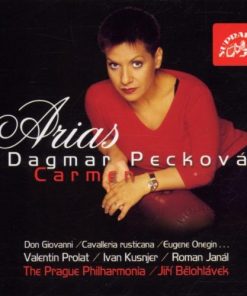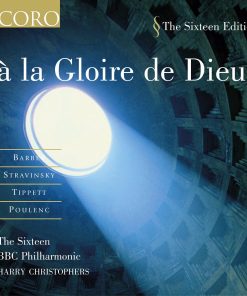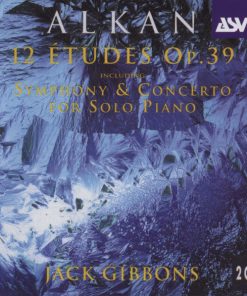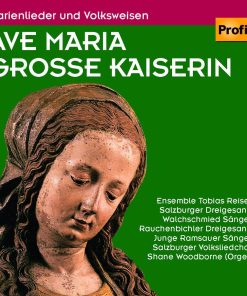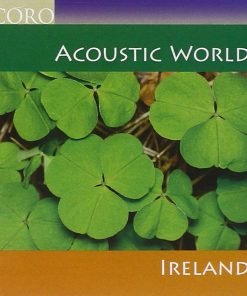BRAHMS & RHEINBERGER: SONATAS FOR CLARINET & PIANO – LARS WOUTERS VAN DEN OUDENWEIJER CHALLENGE
$ 2,99 $ 1,79

In 1891, in the autumn of his life, although Brahms was only 58 at the time, he met Richard Mühlfeld. (1856-1907), who had served as a violinist in the renowned Court Orchestra of Meiningen (which Brahms had once directed) and had changed to the clarinet a few years later. His playing the clarinet had deeply moved Brahms; and even so much that the composer, being under Mühlfeld’s magic spell, spent hours listening to him. Clara Schumann described his playing as warm, delicate and unaffected, with perfect skill and full command of his instrument. Consequently, it did not take Brahms much time to get familiar with all its technical ins and outs as well as its playing capabilities. Mühlfeld favoured a prominent vibrato and a rather gregarious performance, both perhaps the remnants of his previous career as an extrovert violinist. Mühlfeld inspired and motivated Brahms so persuasively that the final outcome was as inevitable as it was rewarding: the Clarinet Trio op. 114, the Clarinet Quintet op. 115 and, finally, the two clarinet sonatas, in E flat and F minor, op. 120. Mühlfeld and Brahms premiered both sonatas in 1895 and performed them often together. Mühlfeld and Brahms premiered both sonatas in 1895 and performed them often together. Brahms valued their relationship so much that he granted Mühlfeld not only all fees from their joint performances, but also yielded him all income from the performance-rights as long as Mühlfeld would live. Last but not least, Brahms donated him the manuscripts of these works after they had been published: ‘To Richard Mühlfeld, the master of this beautiful instrument, in sincere and grateful remembrance’. (From the linernotes of this CD, written by Aart van der Wal)
Another true. modern, master of this beautiful instrument is of course the Dutch Lars Wouters van den Oudenweijer, a clarinet player who understands the depths of the instrument to the fullest. He brings back the warmth and delicacy of these beautiful compositions, a last statement of Brahms’ genius. Besides the two Brahms sonates there is also a sonate of Josef Gabriel Rheinberger who is mainly known by his organ compositions but as a composer he was much more than that.

01. Sonata in E flat major op. 120/2: Allegro amabile 08:48
02. Sonata in E flat major op. 120/2: Allegro appassionato 05:46
03. Sonata in E flat major op. 120/2: Andante con moto 07:09
04. Sonata in f minor op. 120/1: Allegro appassionato 07:59
05. Sonata in f minor op. 120/1: Andante un poco Adagio 05:07
06. Sonata in f minor op. 120/1: Allegretto grazioso 04:19
07. Sonata in f minor op. 120/1: Vivace 05:14
08. Sonate op. 105a: Allegro non troppo 09:19
09. Sonate op. 105a: Andante molto 05:20
10. Sonate op. 105a: Non troppo allegro 06:36
Fast Shipping and Professional Packing
Due to our longstanding partnership with UPS FedEx DHL and other leading international carriers, we are able to provide a range of shipping options. Our warehouse staff are highly trained to pack your goods exactly according to the specifications that we supply. Your goods will undergo a thorough examination and will be safely packaged prior to being sent out. Everyday we deliver hundreds of packages to our customers from all over the world. This is an indication of our dedication to being the largest online retailer worldwide. Warehouses and distribution centers can be located in Europe as well as the USA.
Orders with more than 1 item are assigned processing periods for each item.
Before shipment, all ordered products will be thoroughly inspected. Today, most orders will be shipped within 48 hours. The estimated delivery time is between 3-7 days.
Returns
The stock is constantly changing. It's not entirely managed by us since we are involved with multiple parties such as the factory and our storage. The actual stock can fluctuate at any time. Please understand it may happen that your order will be out of stock when the order is placed.
Our policy is valid for 30 days. If you haven't received your product within 30 days, we're not able to issue either a return or exchange.
You are able to return a product if it is unused and in the same condition when you received it. It must also still remain in the original packaging.
Related products
MUSIC CD
MUSIC CD
MUSIC CD
